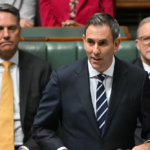Wanted: a trustworthy keeper of the truth

Debate about news coverage of a shooting that took the lives of four children and three adults in Western Australia, and subsequent commentary, once again raises the question: does the media merely traffic in what interests the public or does it live to serve the public interest?
The relationship between the public interest and media reporting, which has always been of an elastic nature, is becoming even more flexible. As the media landscape becomes more fragmented, the true mass audience frays, and the scramble for an audience becomes just that little bit more spirited. This inevitably influences what the media chooses to report and how it weights its coverage.
Given the very nature of the media – how it came to be, it’s ownership structure, its reason for being – it is in many ways remarkable that the media managed for so long to retain its relatively high standing in the community, and for its various products to be regarded as compelling and necessary by so many citizens.
After all, the various arms of the media ply their trade via an informal social licence. Journalists ask their questions as part of a trade-off: society allows them to poke their noses in other people’s business and in return society is rewarded with unimpeachable information, assembled and presented from a default position that seeks to be disinterested. Significantly, the media decides what it will and won’t look into.
That is the essence of the media/public interest relationship in its most abstract form. It has always been a remarkable arrangement. Commercial media companies are in the news business for a profit and the real money is in selling advertising.
But it has always been the journalism that’s attracted the readers or viewers – specifically, the type of customers that advertisers wanted to reach. So there have always been dual motives, the pursuit of profit and the pursuit and exposure of the truth, leveraging off each other.
The truth is that many elements of, and many participants in, the media aspire to serve the public interest. It is a key motivation for many journalists and editors. They’re driven by a desire to use journalism to contribute to a better-informed society.
The businesses were built on trust. Other industries are also built on trust: medicine and the law are two, but practitioners in those fields must hold qualifications. There is no qualification for journalists. Perhaps banking is the most comparable sector when it comes to provider/client trust but even that sector is subject to considerable regulatory oversight – as flawed as that might appear to be right now.
The truth is that many elements of, and many participants in, the media aspire to serve the public interest. It is a key motivation for many journalists and editors. They’re driven by a desire to use journalism to contribute to a better-informed society.
How does the media operate in the best interests of the public? There’s a general view that this is done chiefly through investigative journalism. Perhaps this is a legacy of Watergate or just our tendency – exaggerated in this time-poor, highly distracted, mentally cluttered age – to pay more attention to the big-ticket items, the blockbuster news stories.
This view carries some justification: the current royal commission into misconduct in the financial sector could not have happened without the journalism of Adele Ferguson of The Age and the whistleblowers upon whom she relied for her reports. Similarly, the work of various journalists, including Joanne McCarthy of The Newcastle Herald, on historical child abuse by members of the clergy led to a royal commission and a great reckoning on this issue in society.
But more often, it’s by doing the ordinary things: covering the courts, the local council, planning disputes, transport, health, the law, education, workplace relations, the arts. Plus crime; we need to hear about the worst in our society in order to appreciate the best. All of the information you can’t readily get without someone else going out to get it on your behalf.
But it’s always been the case that journalism is also about grabbing attention and entertaining the consumer. Increasingly, media companies must pay heed to these motivations. The business models that have sustained what we now refer to as legacy media or mainstream media are crumbling. Now, much more than ever, the media – not just the mainstream press but social media, which traffics in news and opinion – must provoke and pander.
The negative effect of digital disruption on the media’s capacity and desire to benefit the public interest should not be underestimated. The disruption will never end. And it has profound implications for the capacity of journalism to act positively in the public interest over the longer term.
There’s a fair amount of by-the-numbers journalism now. The standard leading items on commercial TV news – one of the most popular outlets for news – are a cavalcade of crime and courts. The online versions of print products to varying degrees rely on clickbait. This is largely a question of resources and the need to hold on to viewers as people turn to social media or YouTube or streaming services.
It’s worth considering what many might diagnose as the biggest problem with our national polity in the past 10 years – the incapacity of governments of both complexions to move much beyond crisis mode and actually explain themselves to the public and subsequently to get a good run at implementing their policies – as being a symptom of digital disruption of the media.
Is it possible that energy policy has been so fraught and intractable because the public never really understood an ETS or a carbon tax or Direct Action or, for that matter, the National Energy Guarantee? How should responsibility for that be divided between the politicians proposing those policies and the media that’s charged with reporting, explaining and analysing them?
So far no one has found a way towards a new, far-reaching, comprehensive form of modern media that can act as a big tent, as an agreed repository, a meeting place for trusted information. For some time to come, that won’t matter that much, because the existing arms of the mainstream media will be popular enough to, in aggregate, provide a net benefit to the public interest.
But in the long run, as disruption continues, society will need something. The disrupted media landscape carries considerable upside. The internet enables us to locate so much information that, to an extent, we have all become our own protectors of the public interest through remaining informed – if we want to be.
But in other respects, we should be wary of what’s going on. You don’t have to be too old to be able to remember when the content of a federal budget was revealed only on budget night. In recent weeks, we’ve seen the new model: the budget as a very long publicity opportunity for the government.
In the days leading up the Budget, we saw judiciously-leaked bits of the document appearing right across the media. A lot of the budget’s content was already known before release, absent any true analysis or dissenting voices.
A more extreme version of the disruption is already taking place as local newspapers and regional news services either close or consolidate. When papers close or become real estate ad sheets, how do we know what our local member or our councillors are doing? How are they being tested, questioned? Unless you spend a lot of time and effort making phone calls, sending emails and attending parliament or the local council chamber, you won’t know. The local paper used to do that for you.
How do we advance our society without common, trusted, respected sources of information? As flawed as the media has been down the years, should we lose it, the public interest definitely won’t be served.
This article was published by UNSW.
Shaun Carney is Adjunct Associate Professor at School of Humanities and Social Sciences, UNSW Canberra. He was the associate editor and chief political columnist at The Age from 1997 to 2012.











